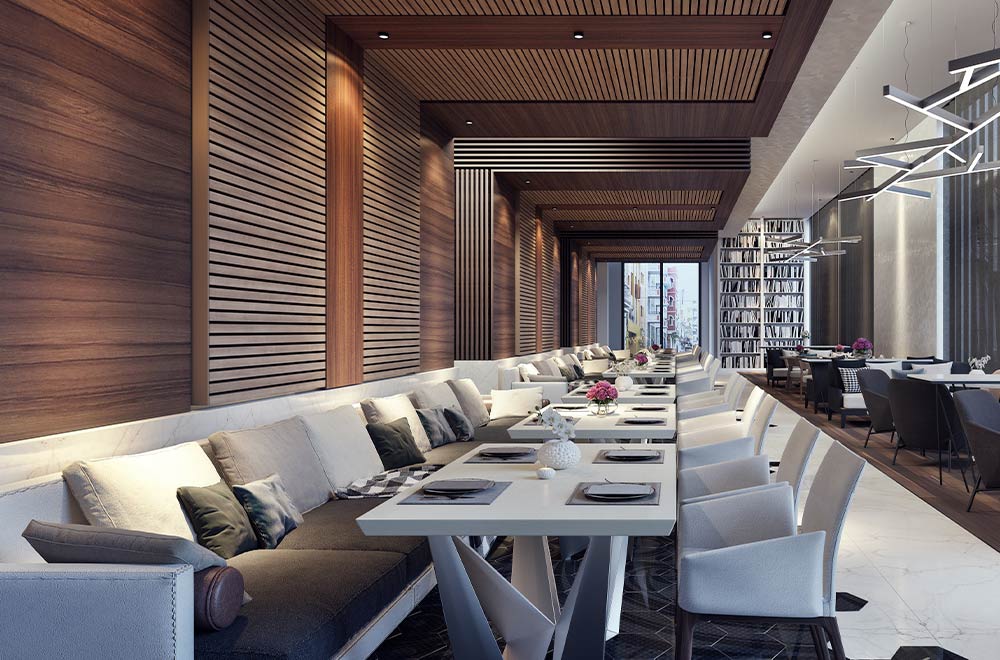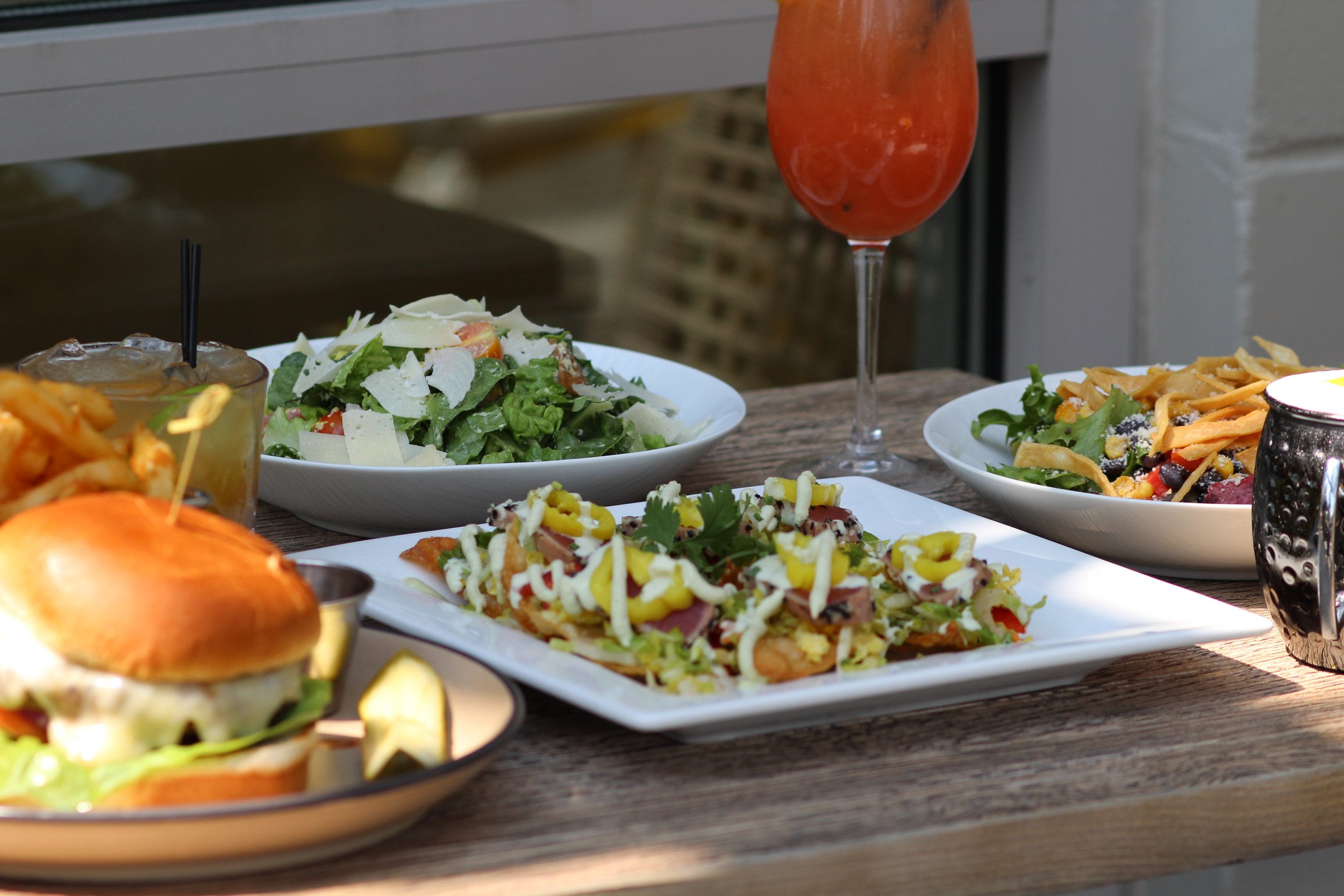Savor Genuine Oriental Cuisine With a Pan-Asian Spin for a Cooking Journey
Embarking on a culinary journey via authentic Eastern cuisine, enhanced with a Pan-Asian spin, uses an one-of-a-kind opportunity to check out the rich tapestry of flavors that define the region's diverse culinary customs. As you consider these enticing recipes, think about the cultural narratives and historical influences that form them, each bite using a tale waiting to be discovered. best asian restaurant Islamabad.

Checking Out Pan-Asian Flavors
In the world of international gastronomy, Pan-Asian food sticks out for its impressive diversity and the unified interaction of flavors from various Asian societies. This cooking method celebrates the distinct active ingredients and abundant customs found throughout the continent, producing a tapestry of tastes that is both enjoyable and appealing. Trick to Pan-Asian cuisine is its capability to stabilize different tastes-- wonderful, salty, spicy, and sour-- while highlighting the quality and quality of each active ingredient.
From the umami-rich soy sauce of Japan to the intense chili peppers of Thailand, Pan-Asian food supplies a comprehensive combination of flavors. These aspects are usually integrated in creative ways, boosting recipes with layers of complexity. As an example, the use of great smelling natural herbs such as lemongrass and cilantro, common in Vietnamese and Thai cuisine, adds a revitalizing illumination to recipes, while the unification of coconut milk delivers a creamy, rich texture.
The emphasis on fresh fruit and vegetables and aromatic flavors makes sure that each meal is not just a feast for the preference buds but likewise for the senses. Pan-Asian food invites restaurants to start a culinary trip, discovering the large and differed landscapes of Asian gastronomy with every bite.
Fusion Dishes to Attempt
While Pan-Asian cuisine is commemorated for its typical flavors, the modern-day cooking landscape is significantly accepting fusion meals that blend these timeless elements with influences from other areas. This cutting-edge strategy not only honors the abundant heritage of Eastern cooking arts but likewise presents unique preference experiences that attract contemporary palates.
An archetype of such a combination recipe is the Korean-Mexican taco, where seasoned bulgogi beef is covered in a warm tortilla, topped with kimchi and a spicy gochujang-infused salsa. This mix marries the vibrant, tasty tastes of Korea with the lively, fresh elements of Mexican cuisine. Similarly, sushi burritos have gained appeal, joining together the fragile creativity of Japanese sushi with the hearty, hand-held convenience of a burrito, often featuring combination components like tempura shrimp and avocado with a drizzle of wasabi mayo.
One more noteworthy dish is Thai curry ramen, which infuses the creamy, aromatic spices of Thai curry right into the soothing brew of standard Japanese ramen, creating a harmonious mix that entices the senses. These blend dishes prolong past simple uniqueness; they represent a culinary dialogue between cultures, motivating exploration and technology worldwide of Pan-Asian food.
Crucial Ingredients and Spices
To absolutely appreciate Pan-Asian food, one should comprehend the necessary components and spices that form its foundation. This varied cooking design attracts from an abundant tapestry of Asian customs, using a harmonious blend of appearances and tastes. Key ingredients include soy sauce, fish sauce, and oyster sauce, which impart a why not look here full-flavored umami deepness important to Eastern recipes. Complementary to these are rice vinegar and mirin, offering a delicate level of acidity and sweet taste.
Fragrant aspects are critical, with garlic, ginger, and lemongrass being common throughout different Pan-Asian recipes. These active ingredients give an aromatic base that boosts the complexity of flavors. helpful resources Seasonings such as celebrity anise, cardamom, and cinnamon introduce warmth and personality, echoing impacts from areas like China and India.

Cooking Techniques and Tips
Grasping the art of Pan-Asian food requires familiarity with its distinct cooking techniques, each adding to the vivid tapestry of flavors this cooking tradition is commemorated for. Central to these techniques is the stir-fry, a fast cooking technique that maintains the nutritional integrity and vibrant shades of components. Utilizing a wok, the stir-fry technique allows for also heat circulation, necessary for achieving the characteristic appearance and taste equilibrium of Pan-Asian recipes.
Another essential method is steaming, specifically widespread in Chinese food. This mild method preserves the natural flavors and nutrients of active ingredients, making it suitable for seafood and veggies. Dumplings, a precious staple, usually benefit from steaming, causing soft, delicious appearances.
Barbecuing, additionally indispensable, presents great smoky midsts to meals such as Korean bulgogi or Japanese yakitori (pan asian dining Islamabad). This strategy frequently involves marinading ingredients, allowing tastes to pass through deeply prior to cooking over an open flame or warmer
Finally, understanding the art of balancing tastes-- wonderful, sour, salty, bitter, and umami-- is critical. Appropriately layering these aspects can elevate a dish from normal to phenomenal, using a complex and pleasing culinary experience that personifies the essence of Pan-Asian food.
Dining Experiences Worldwide
Around the world, Pan-Asian food offers an unparalleled dining experience, commemorated for its rich tapestry of tastes and vivid presentations. This cooking phenomenon has transcended social limits, catching the hearts and palates of food fanatics worldwide. In cosmopolitan cities fresh York, London, and Sydney, Pan-Asian dining establishments act as fusions where cooking practices from Thailand, Japan, China, and beyond converge, supplying restaurants with an eclectic mix of dishes that highlight the area's diversity.
The international allure of Pan-Asian food lies in its capacity to supply both authenticity and technology. Chefs masterfully marry standard active ingredients such as lemongrass, soy sauce, and miso with modern techniques, leading to dishes that are both refreshingly brand-new and familiar. This fusion allows restaurants to start a culinary journey that appreciates heritage while accepting modernity.
Furthermore, dining experiences are raised through thoughtfully developed environments that show the ethos of Pan-Asian appearances. From minimal Japanese-inspired food nearby insides to lively Thai-themed areas, each restaurant offers a special setting that matches the cooking offerings. Consequently, customers are not merely consuming a meal yet partaking in a social experience, making Pan-Asian dining a genuinely global phenomenon.
Conclusion
The expedition of Pan-Asian food supplies a profound understanding of the complex interaction of flavors and culinary practices throughout Asia. By embracing blend meals such as Thai curry ramen and sushi burritos, the culinary journey not only highlights the versatility of conventional active ingredients however also showcases cutting-edge modern strategies. This gastronomic experience, improved by cooking techniques and vital flavors, provides an one-of-a-kind chance to appreciate the multiculturalism and cooking virtuosity that define Pan-Asian cuisine on a global scale.
Beginning on a cooking trip via genuine Asian cuisine, boosted with a Pan-Asian twist, provides an unique possibility to explore the abundant tapestry of flavors that specify the area's diverse culinary customs.In the realm of worldwide gastronomy, Pan-Asian cuisine stands out for its exceptional variety and the harmonious interaction of tastes from different Oriental cultures. Key to Pan-Asian cuisine is its ability to stabilize different tastes-- pleasant, salted, spicy, and sour-- while highlighting the freshness and high quality of each component.

Comments on “Best Ambiance Restaurants Islamabad: Perfect Destinations for an Unforgettable Dish”